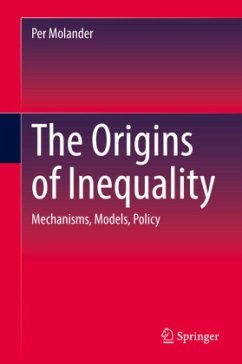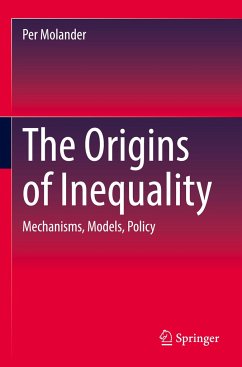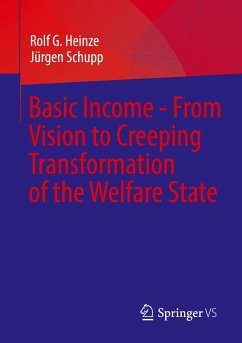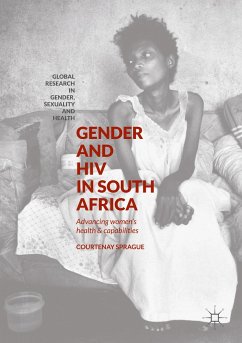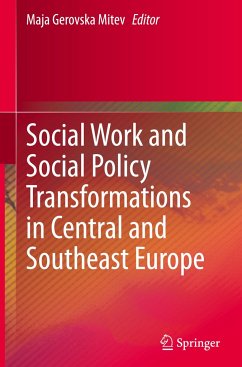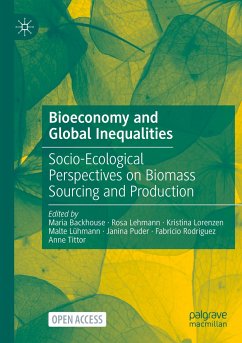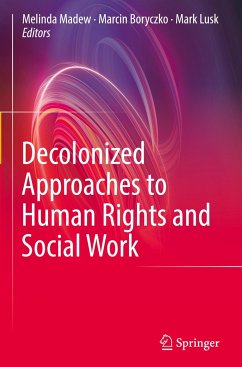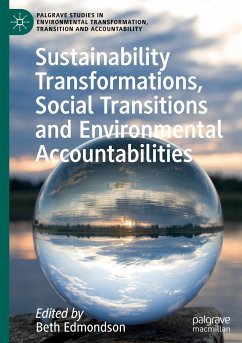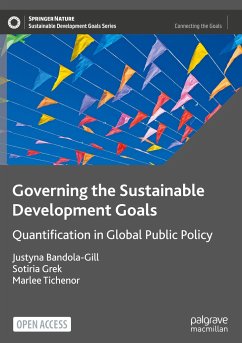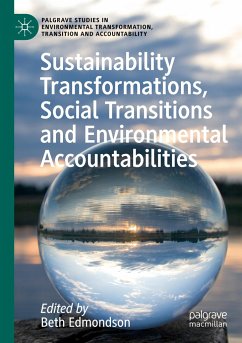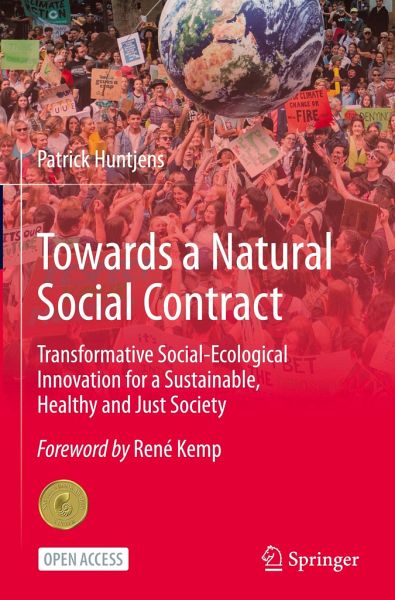
Towards a Natural Social Contract
Transformative Social-Ecological Innovation for a Sustainable, Healthy and Just Society
Versandkostenfrei!
Versandfertig in 6-10 Tagen
23,99 €
inkl. MwSt.

PAYBACK Punkte
12 °P sammeln!
This open access book is a 2022 Nautilus Gold Medal winner in the category "World Cultures' Transformational Growth & Development". It states that the societal fault lines of our times are deeply intertwined and that they confront us with challenges affecting the security, fairness and sustainability of our societies. The author, Prof. Dr. Patrick Huntjens, argues that overcoming these existential challenges will require a fundamental shift from our current anthropocentric and economic growth-oriented approach to a more ecocentric and regenerative approach. He advocates for a Natural Social Co...
This open access book is a 2022 Nautilus Gold Medal winner in the category "World Cultures' Transformational Growth & Development". It states that the societal fault lines of our times are deeply intertwined and that they confront us with challenges affecting the security, fairness and sustainability of our societies. The author, Prof. Dr. Patrick Huntjens, argues that overcoming these existential challenges will require a fundamental shift from our current anthropocentric and economic growth-oriented approach to a more ecocentric and regenerative approach. He advocates for a Natural Social Contract that emphasizes long-term sustainability and the general welfare of both humankind and planet Earth. Achieving this crucial balance calls for an end to unlimited economic growth, overconsumption and over-individualisation for the benefit of ourselves, our planet, and future generations. To this end, sustainability, health, and justice in all social-ecological systems will require systemic innovation and prioritizing a collective effort. The Transformative Social-Ecological Innovation (TSEI) framework presented in this book serves that cause. It helps to diagnose and advance innovation and spur change across sectors, disciplines, and at different levels of governance. Altogether, TSEI identifies intervention points and formulates jointly developed and shared solutions to inform policymakers, administrators, concerned citizens, and professionals dedicated towards a more sustainable, healthy and just society.
A wide readership of students, researchers, practitioners and policy makers interested in social innovation, transition studies, development studies, social policy, social justice, climate change, environmental studies, political science and economics will find this cutting-edge book particularly useful.
"As a sustainability transition researcher, I am truly excited about this book. Two unique aspects of the book are that it considers bigger transformation issues (such as societies' relationship with nature, purpose and justice) than those studied in transition studies and offers analytical frameworks and methods for taking up the challenge of achieving change on the ground."
- Prof. Dr. René Kemp, United Nations University and Maastricht Sustainability Institute
A wide readership of students, researchers, practitioners and policy makers interested in social innovation, transition studies, development studies, social policy, social justice, climate change, environmental studies, political science and economics will find this cutting-edge book particularly useful.
"As a sustainability transition researcher, I am truly excited about this book. Two unique aspects of the book are that it considers bigger transformation issues (such as societies' relationship with nature, purpose and justice) than those studied in transition studies and offers analytical frameworks and methods for taking up the challenge of achieving change on the ground."
- Prof. Dr. René Kemp, United Nations University and Maastricht Sustainability Institute





